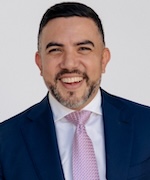While many parents want to support their children and grandchildren with cash gifts and loans, they also need financial security in their later years, says Marshall Ross, Partner Education Manager at Acenda.
Speaking during an online seminar on generational wealth transfer – $3 trillion is expected to pass from baby boomers to younger generations over the coming years – Ross touched on the legal risks involved in parents handing out cash to their kids, and noted that the bank of mum and dad is now the fifth-largest lender in the country with $35bn on loan.

Parents are not just helping their children buy their first home, he said. They are also chipping in to pay for groceries, general bills, expenses, and grandchildren’s education.
Meanwhile, generous parents will need money for healthcare, living expenses, and aged care, meaning their good intentions could leave them short when their ability to earn money is long gone.
“All of these complexities come with retirement and increased lifespans,” he said. “A lot of people don’t expect their children to stop asking for money.”
Ross said 22% of parents expect to fund their children by cutting back on their own expenses, “…and that worries me”.
…A lot of people don’t expect their children to stop asking for money…
“Two-thirds of them say they’re risking financial hardship, or potentially feel like they’re exposing themselves, by helping their children,” said Ross.
“In the past, it would be quite common for the accumulator – or the younger people – to look after their parents in retirement.
“We’re seeing that with the bank of mum and dad, intergenerational wealth transfer has been flipped – wealth is being transferred pre-death.”
He said this situation creates a lot of challenges that both generations aren’t necessarily talking about, and could leave retirees exposed to financial risk from the unplanned transfer of wealth.
Joining Ross on the panel were Pedro Marin Ramirez, MD Marin Wealth, Brad Monk, a Senior Financial Adviser at LifePath Financial Planning, and Kate Kimmorley, Principal, Kimmorley Financial Management.
Kimmorley said protecting the asset pool is important because people are living longer, the cost of care is increasing, and parents don’t want to become a burden to their children later in life.
…understanding the granny flat rules is very important for a financial planner…
“That’s if the kids are around to look after them,” she said. “Because these days people move away, move overseas. Those are some of the big challenges we’re seeing now, and the big discussions we are having with our older clients – not even older… sixties and seventies.”
Monk said three generations living in one house is something he’s beginning to see more often.

Senior Financial Adviser with LifePath Financial Planning.
“So understanding the granny flat rules is very important for a financial planner who wants to specialise in that area,” he said.
He also raised concerns about loans to children, noting these can cause complications with Centrelink down the track, as well as when other problems arise.
“It’s very important for the older generation not to be so trusting of their kids,” he said. “They’re generally very generous – most of them – and have good hearts and good intentions. Sometimes we need to protect older people from themselves.”
Ramirez pointed to children asking their parents to guarantee bank loans – and the risks that can bring.

He said parents often don’t understand what would happen to their house if a child stops meeting their financial commitments.
“They also don’t understand the gifting rules behind providing a portion of their wealth into the child’s bank,” he said.
“What happens if the parents die? What happens to that loan? How fast can you pay it? Will that affect their credit?
“And then we get more complicated structures, where the parents have a family trust. You can then invest using that family trust, and it could be intergenerational. So that’s another benefit.”
Estate planning
Kimmorley said most of her firm’s reviews include a discussion around estate planning.
“We look at taxable and tax-free components in super, and we talk about testamentary trusts,” she said.
…there’s been a massive reduction in advice professionals…
“You know, a lot of people still have simple wills, and they don’t think about that asset transfer post-death – the tax impacts and the risks.
“We work closely with estate planning lawyers as well, and the educational piece with our clients around testamentary trusts.”

Kimmorley also raised the issue of a lack of advisers, saying her firm is one of those struggling to keep up with demand.
“We know there’s been a massive reduction in advice professionals,” she said. “It’s been tough finding the time to think proactively about that next level of engagement and making that work in our businesses, to communicate with the next generation.
“But clients need to be more informed. It’s our responsibility to keep those things front of mind for our clients at any age.”
Next generation
Ramirez also touched on working with the next generation of clients.
“We just basically say, ‘Your children can piggyback on your wealth by conglomerating their supers or their investments’. That’s usually a great start,” he said.
Ramirez also shared a tip on ensuring clients’ children know who to turn to for help, saying: “LinkedIn is our business card.”
“We enforce that,” he said. “We’ll say to clients, ‘make sure that your son or daughter knows who we are, so they know who to call if something happens’.
“That helps with that introduction – by basically protecting the client. The older client.”




